From RSU to New Zealand: A surprise reunion on the other side of the world
When Max Zwartjes and Emile Crouzen began their medical studies at Rīga Stradiņš University (RSU), neither of them expected that years later they would run into each other by chance in a hospital cafeteria – on the other side of the world. Now both working as doctors in Wellington, New Zealand, the two Dutch alumni were surprised to reconnect in such an unlikely setting. Their encounter sparked a conversation about the paths they have taken since graduating, what drew them to study medicine abroad, and how their time at RSU helped prepare them for working in different healthcare systems. In this interview, Max and Emile reflect on their experiences at RSU and how it shaped their careers beyond Latvia.
How did you come across RSU, and what ultimately made you decide to pursue your studies there?
Emile: I found RSU while looking for English-taught medical programmes. The university had a good reputation and ranking, and I was accepted.
Max: It’s funny how I ended up choosing RSU. What really convinced me were some YouTube promo videos – Student Life in Riga was one. I think it’s still online. They gave a great sense of the vibe, and it just felt right. Riga seemed like a fascinating place that was completely new to me, which made it even more appealing. I also met RSU representatives at an information fair in the Netherlands, and although I considered other options, RSU stood out.
What do you remember most vividly from your time at RSU – any particular moments, mentors, or experiences that left a lasting impression?
Emile:
RSU is very supportive of ambitious students
and offers unique hands-on opportunities – like assisting in surgery or on the wards – that many students elsewhere don’t get. The teaching quality was high, with experienced doctors who were truly interested in teaching the next generation.
Max:
What stands out most is that RSU is where I met my wife, Nora!
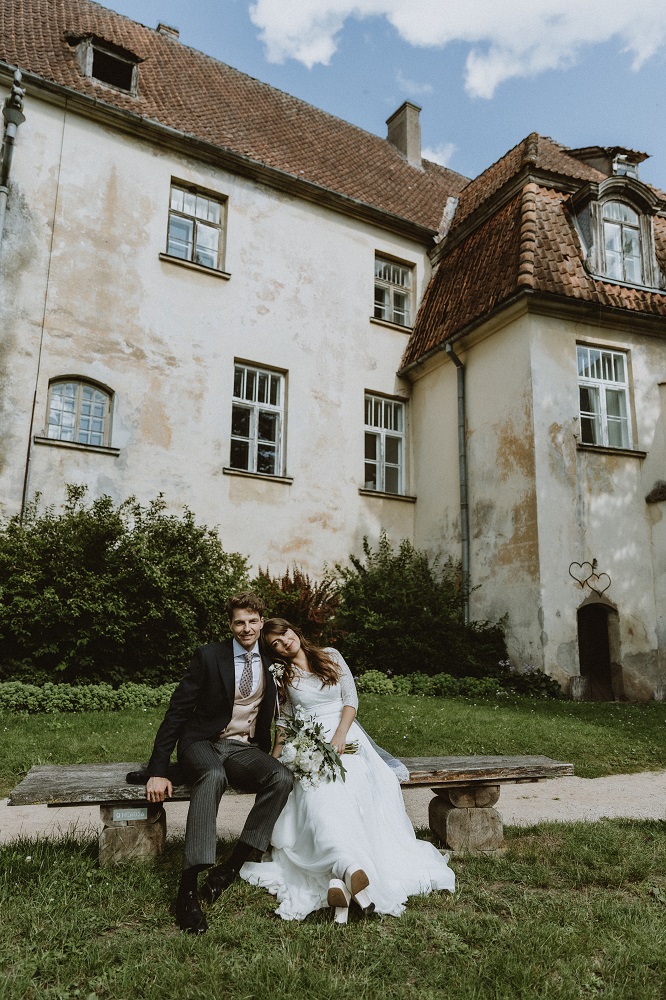
Max and Nora on their wedding day in Jaunpils. Photo: Courtesy of Max Zwartjes
We met on my very first day at RSU. She was a student there too and part of the RSU mentor programme. She happened to be the mentor to my friend Ali. Eleven years later, we are married and even had our wedding in Jaunpils in the summer of 2023. I’ve also picked up quite a bit of Latvian! Another nice memory is being welcomed at the airport by RSU representative, Māris Ginters. Such a personal touch – I doubt it’s still done today, but it was such a cool and personal way to arrive in a new country.
Emile, what path did you take after graduating from RSU? Could you describe your journey towards paediatrics and working in neonatal intensive care?
Emile: After graduating from RSU, I started training in the UK because it accepted RSU graduates directly and provided a good route to New Zealand. I had already decided during medical school that I wanted to specialise in paediatrics. Since then, I’ve rotated through paediatric cardiology, neurology, oncology, and nephrology. I’m currently doing another stint in neonatal intensive care. I was able to make the move to New Zealand after 33 months in the UK.
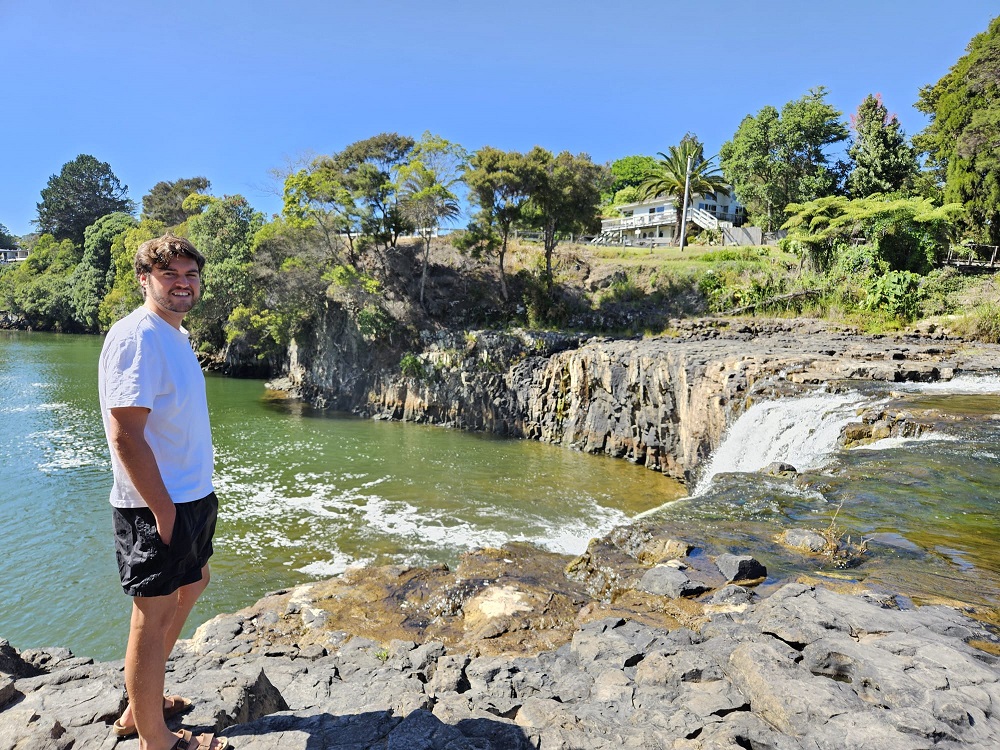
Emile in New Zealand. Photo: Courtesy of Emile Crouzen
Max, could you tell us about your current role as a cardiology registrar in Wellington? What excites you most about this specialisation?
Max: Moving to New Zealand strengthened my passion for cardiology. I’m drawn to its fast pace and the chance to save lives in urgent situations. My interest began at RSU, especially during Prof. Jūlija Voicehovska’s lectures and practical classes on clinical signs, heart sounds and valvular disease. What I love is that despite all the advanced tech, cardiology still relies on careful bedside examination and listening to patients before using machines. Plus, I’ve always enjoyed reading ECGs, something I think every cardiologist does.
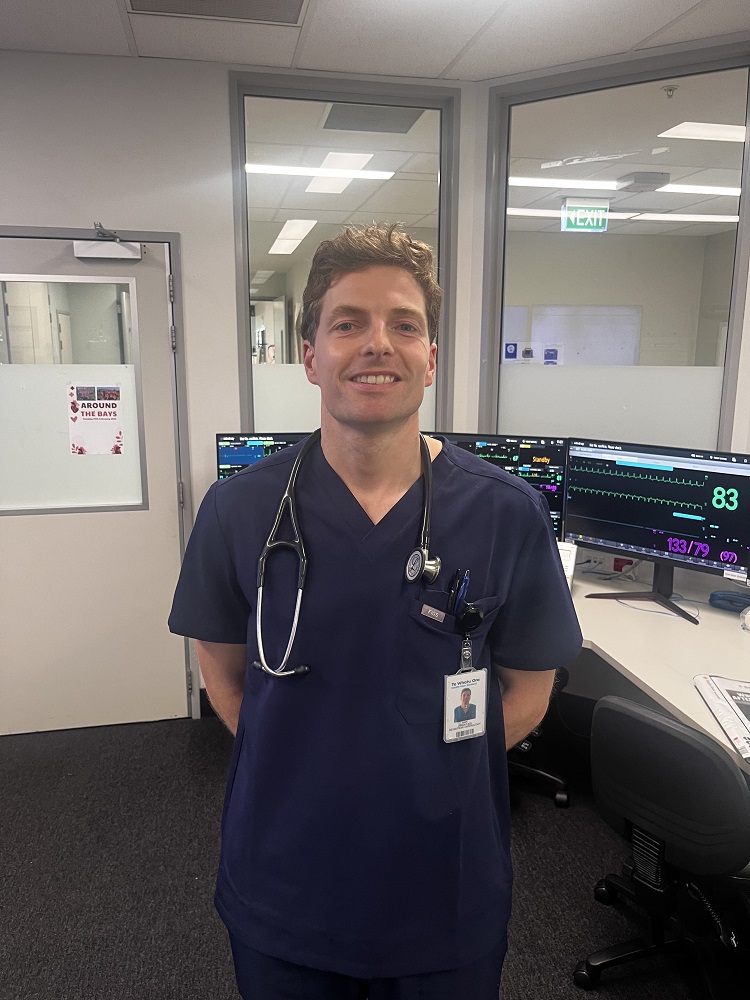
Max in the cardiology ward in New Zealand. Photo: Courtesy of Max Zwartjes
You’ve worked in the Netherlands and now in New Zealand – how would you compare those healthcare systems, especially through the lens of your RSU training?
Max: RSU gave me a really strong theoretical foundation. I liked the structure with regular tests and colloquiums, which kept us studying consistently.
What really stood out, though, was the bedside teaching.
Learning from experienced professors while seeing patients taught me to think clinically and from a real-world perspective.
What have you both learned from working in different healthcare systems, and how do you feel RSU prepared you for those transitions?
Emile:
What RSU offers is a unique international environment – students from all over Europe and beyond – which helped me think more broadly about where I might want to go next.
I’ve worked in a few different systems, including Tanzania. Each has its own level of resources. Latvia’s healthcare system is well-established and offers students hands-on opportunities you might not get elsewhere, like assisting in surgery.
Max: Working in hospitals in Latvia, the Netherlands, and now New Zealand has shown me how much medical systems can differ – not just in protocols, but also in culture, expectations, and team dynamics. That said, the core remains the same: caring for patients. You adapt quickly.
You recently ran into one another by complete chance at Wellington Hospital – could you describe that moment? What went through your mind?
Max: Yes, it was a complete surprise! I’ve worked in three hospitals across New Zealand and hadn’t come across a single Dutch doctor. Then suddenly, in the hospital cafeteria, I hear, ‘Max?’ It was Emile, standing right there. We hadn’t seen each other since our RSU days, though we used to cross paths regularly in Riga. To meet again as registrars in the same hospital on the other side of the world felt surreal. I took a selfie straight away – that’s the photo you see here to the right!
Emile: It was such an unreal coincidence. You never expect to bump into someone from your past, let alone from the same country and university, in a hospital cafeteria halfway across the world. It was a very nice and comical surprise.
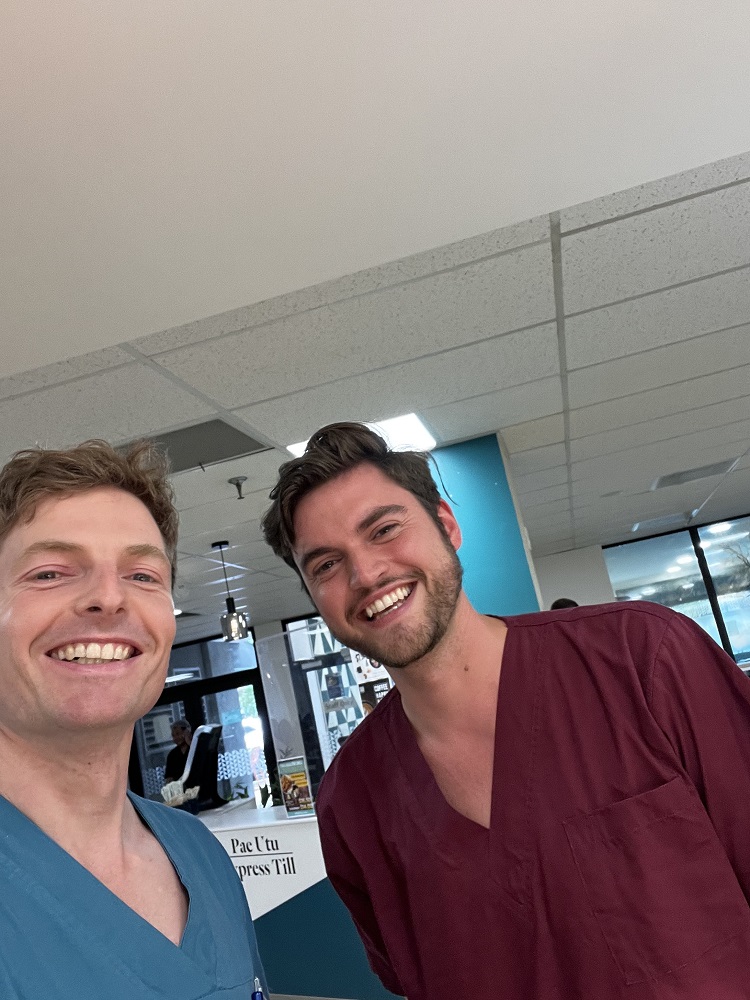 Max and Emile's chance encounter in the hospital cafeteria in New Zealand. Photo: Courtesy of Max Zwartjes
Max and Emile's chance encounter in the hospital cafeteria in New Zealand. Photo: Courtesy of Max Zwartjes
Do you think studying abroad helps you adapt more easily to new environments – whether in medicine or daily life?
Max: Yes, definitely. Studying abroad teaches you to navigate unfamiliar environments – different cultures, hospital systems, and ways of communicating. It makes you more adaptable and less thrown by change. I’m still learning, of course, but each move has made me steadier and more comfortable figuring things out as I go.
Emile: That really depends on the person. I’ve lived in many countries and worked in a variety of settings, and I find it doesn’t take much to adapt. But getting the right support to adjust to new work or living cultures is key.
What advice would you give to future RSU students – especially those hoping to take their careers across borders?
Emile: RSU was a positive experience for me and many of my friends. If you're coming to Latvia with plans to eventually work elsewhere, it’s a great starting point. The Latvian healthcare system gives students a lot of independence, whether it’s ward rounds, surgeries, or research. The doctors are highly knowledgeable and genuinely interested in teaching.
Max: Absolutely go for it!
RSU opened doors I never imagined – academically, professionally, and personally.
You never know where it might take you.
Related news
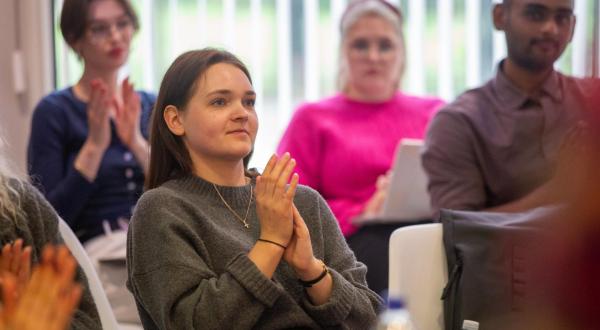 18 Student teams to start developing their ideas in B-Space incubation programmeFor RSU Employees, For Students, Innovation, B-Space
18 Student teams to start developing their ideas in B-Space incubation programmeFor RSU Employees, For Students, Innovation, B-Space


